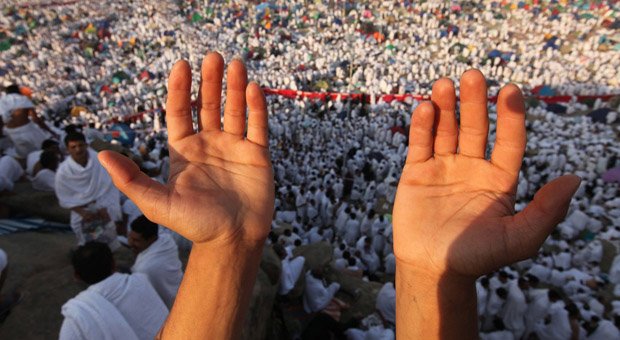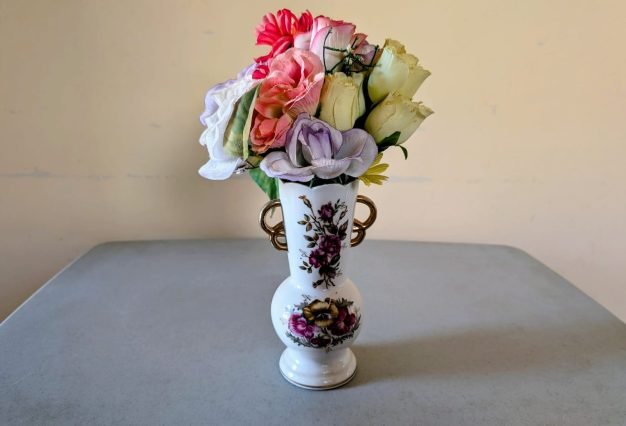By Yūsuf Badāt
The following are some of the amazing virtues and benefits of ʿArafah Day
The Best Day
أَفْضَلُ الْأَيَّامِ يَوْمُ عَرَفَةَ
“The best day is the ʿArafah Day.” – Ibn Ḥibbān
God’s Special Mercy
يَنْزِلُ اللَّهُ تَعَالَى إلَى سَمَاءِ الدُّنْيَا فَيُبَاهِي بِأَهْلِ الْأَرْضِ أَهْلَ السَّمَاء
“God [the Almighty’s majesty and exclusive mercy] descends to the worldly skies [on ʿArafah Day]. God boasts about the earthly people to the heavenly creations.” – (Ibn Ḥibbān)
Emancipation from Hell
مَا مِنْ يَوْمٍ أَكْثَرَ مِنْ أَنْ يُعْتِقَ اللَّهُ فِيهِ عَبْدًا مِنْ النَّارِ مِنْ يَوْمِ عَرَفَةَ
“There is no day on which God, the Almighty sets free more slaves from Hell than He does on the Day of ‘Arafah.” – (Ṣaḥīḥ Muslim)
The Best Time to Make Supplications (Duʿaʾs)
خَيْرُ الدُّعَاءِ دُعَاءُ يَوْمِ عَرَفَةَ
“The best supplication is the supplication of ʿArafah Day.” – (Tirmidhī)
Forgiveness
صِيَامُ يَوْمِ عَرَفَةَ إِنِّي أَحْتَسِبُ عَلَى اللَّهِ أَنْ يُكَفِّرَ السَّنَةَ الَّتِي قَبْلَهُ وَالسَّنَةَ الَّتِي بَعْدَهُ
“I am confident the fasting on the day of ‘Arafah compensates for [for the minor sin of] a year before it and also after it.” (Saḥīḥ Muslim)
The Prophet Muḥammad’s ﷺ Actions on ‘Arafah Day During His Final Year of Life
On ʿArafah Day, the Prophet ﷺ was preforming Ḥajj with approximately 115 000 Companions. He proceeded to ‘Arafah after sunrise from Mina, where a tent was pitched for him. He was consistently reciting the takbīr and talbīyyah (chanting the praises of God). After a brief rest, at midday, he ascended his camel and delivered a sermon to his Companions where in he addressed matters of worship, upright financial transactions, human rights, family values, abandonment of ignorant customs and also the sanctity of life. He lead prayers thereafter stood supplicating to the Almighty for a few hours up until sunset.
Connection with Supplication
The statements and also the actions of the Prophet Muḥammad ﷺ display that there is a strong connection with supplication and ʿArafah Day. It is important that we maximise the ʿArafah Day in praying and supplicating for all our needs. In general, Divine Godly mercy descends during the last third of the night except on ‘Arafah Day. On this special day, God Almighty’s exclusive mercy descends to the worldly skies during the day as well. The pious predecessors would save their needs for the supplications of ‘Arafah Day. Countless human needs, wishes and supplications on ‘Arafah Day are fulfilled [and accepted]. Some of the pious predecessors would say, “By God, whatever we asked for on ‘Arafah Day, we saw it materialize vividly before the year’s end.”
Here are some things we should do, in reference to supplication (duʿāʾ):
- Use special moments such as ʿArafah Day to make duʿāʾ
- Make duʿāʾ a habit. Schedule a daily time to supplicate.
- Make physical and mental preparation prior to supplicating, by choosing a suitable place and eliminating distractions.
- Use praises of God, and salutations to the Prophet prior to supplicating for personal needs.
- Be confident that your supplications will be answered.
- Only supplicate for that which is permissible and positive.
- Follow up your supplication with positive efforts and actions.
Fuḍayl Ibn Ayāḍ on ʿArafah Day nudged a person next to him, where multitudes had gathered on the plains during Ḥajj and asked him, “Do you think if all these people went to the richest king and asked for a penny they would be rejected?” He replied, “Not at all!”. “God is far more wealthy and generous than any king. He will surely answer the prayers of all those who supplicate.”
Ibn Mubārak asked Sufyān al-Thawrī on ‘Arafah day, “Who is the unfortunate one today?” He replied, “Those who feel God will not pardon them.”
ʿArafah Supplications
لَا إِلَهَ إِلَّا اللَّهُ وَحْدَهُ لَا شَرِيْكَ لَهُ لَهُ الْمُلْكُ وَلَهُ الْحَمْدُ وَهُوَ عَلَى كُلِّ شَيْءٍ قَدِيْرٌ
Lā ilāha illā Allāh waḥdahū lā sharīkalahū lahu al-mulkū walahū al-ḥamdū wahuwa ʿalā kullī shayin qadīr
“There is no god but Allāh. He is alone in divinity with no partner. To God belongs sovereignty and all praise. He is Ever-Powerful over all things.” (Tirmidhī, Musnad Aḥmad)
اَللَّهُمَّ اجْعَلْهَا خَيْرَ غَدْوَةٍ غَدَوْتُهَا وَاَقْرَبَهَا مِنْ رِضْوَانِكَ وَابْعَدَهَا عَنْ سَخَطِكَ اَللَّهُمَّ اِلَيْكَ تَوَجَّهْتُ وَعَلَيْكَ تَوَكَّلْتُ وَوَجْهُكَ اَرَدْتُ فَاجْعَلْ ذَنْبِيْ مَغْفُوْرًا وَحَجِّيْ مَبْرُوْرًا وَارْحَمْنِيْ وَلَا تُخَيِّبْنِيْ وَبَارِكْ لِيْ فِيْ سَفَرِيْ وَاقْضِ بِعَرَفَاتٍ حَاجَتِيْ اِنَّكَ عَلَى كُلِّ شَيْءٍ قَدِيْر
Allāhummajʿalhā khayra ghadwatin ghadawtuhā wa-aqrabahā min riḍwānika wa-abʿadahā ʿan sakhaṭika, Allāhumma ilayka tawajjahtū wa-ʿalayka tawakkaltū wa-wajhuka aradtū fajʿal dhanbī maghfūran wa-ḥajjī mabrūran warḥamnī wa-lā tukhayyibnī wa-bārik lī fī safarī waqḍi bi-ʿarafātin ḥājatī innaka ʿalā kulli shayin qadīr
“O God make this morning the best morning I experience, a morning with the most nearness to Your pleasure, furthest from Your displeasure. O God I turn to You. I rely upon You. I intend Your countenance. Forgive all my sin. Make my pilgrimage righteous and shower Your mercy upon me. Protect me from failure and bless me in my journey. Fulfill all my needs [I supplicate to You about] at the plains of ʿArafah. Indeed, You are Ever-Powerful over everything.” (Fatḥ Al-Qadīr, Manāsik Al-Nawawī)
سُبْحَانَ اللهِ وَالْحَمْدُ لِلَّهِ وَلَا إِلَهَ إِلَّا اللَّهُ وَاللهُ اَكْبَرُ
Subḥān Allāh wa al-ḥamdu li Allāh wa lā ilāha illā Allāh wa Allāh Akbar
“Glory to God, all praise is for God. There is no god but Allāh. God is the Greatest.” (Hadīyat Al-Sālik)
اَللَّهُمَّ إِنِّيْ ظَلَمْتُ نَفْسِيْ ظُلْماً كَبِيْراً وَلَا يَغْفِرُ الذُّنُوْبَ إِلاَّ أنْتَ فَاغْفِرْلِيْ مَغْفِرَةً مِنْ عِنْدِكَ وَارْحَمْنِيْ إنَّكَ أنْتَ الْغَفُوْرُ الرَّحِيْمُ اَللَّهُمَّ اغْفِرْلِيْ مَغْفِرَةً تُصْلِحُ بِهَا شَأْنِيْ فِيْ الدَّارَيْنِ وَارْحَمْنِيْ رَحْمَةً أَسْعَدُ بِهَا فِيْ الدَّارَيْنِ وَتُبْ عَلَيَّ تَوْبَةً نَصُوْحًا لَا أَنْكُثُهَا أبَداً وأَلْزِمْنِيْ سَبِيْلَ الْاِسْتِقَامَةِ لا أَزِيْغُ عَنْهَا أَبَداً اَللَّهُمَّ انْقُلْنِيْ مِنْ ذُلِّ المَعْصِيَةِ إِلَى عِزِّ الطَّاعَةِ وأَغْنِنِيْ بِحَلَالِكَ عَنْ حَرَامِكَ وَبِطَاعَتِكَ عَنْ مَعْصِيَتِكَ وَبِفَضْلِكَ عَمَّنْ سِوَاكَ وَنَوِّرْ قَلْبِيْ وَقَبْرِيْ وَأَعِذْنِيْ مِنَ الشَّرِّ كُلِّهِ واجْمَعْ لِيَ الْخَيْرَ كُلَّهُ اَللَّهُمَّ إِنِّيْ أَسْأَلُكَ الْهُدَى وَالتُّقَى وَالْعَفَافَ وَالْغِنَى اَللَّهُمَّ يَسِّرْ لِيَ الْيُسْرَى وَجَنِّبْنِيَ الْعُسْرَى وارْزُقْنِيْ طَاعَتَكَ مَا أَبْقَيْتَنِيْ اَللَّهُمَّ مَتِّعْنِيْ بِسَمْعِيْ وَبَصَرِيْ اَبَدًا مَا أَبْقَيْتَنِيْ وَاجْعَلْ ذَلِكَ الْوَارِثَ مِنِّيْ وَاجْعَلْ ثَأْرِيْ عَلَى مَنْ ظَلَمَنِيْ وَانْصُرْنِيْ عَلَى مَنْ بَغَى عَلَيَّ يَا اَرْحَمَ الرَّاحِمِيْنَ اَسْتَوْدِعُكَ دِيْنِيْ وَاَمَانَتِيْ وَقَلْبِيْ وَبَدَنِيْ وَخَوَاتِيْمَ عَمَلِيْ وَمَا اَنْعَمْتَ بِهِ عَلَيَّ وَعَلَى جَمِيْعِ اَحْبَابِيْ وَالْمُسْلِمِيْنَ
Allāhumma innī dhalamtū nafsī dhulman kabīran wa-lāyaghfiru al-dhunūba illā anta faghfirlī maghfiratan min ʿindika warḥamnī innaka anta al-ghafūr al-raḥīm, Allāhummaghfirlī maghfiratan tuṣliḥu bihā shaʿnī fī al-darayn warḥamnī raḥmatan asʿadu bihā fī al-darayn wa tubʿalayya tawbatan naṣūḥan lā-ankuthuhā abadan wa-alzimnī sabīla al-istiqāmati lā-azīghū ʿanhā abadan, Allāhummanqulnī min dhulli al-maʿaṣiyati ilā ʿizzi al-ṭāʿah wa aghninī bi-ḥalālika ʿan ḥarāmika wa bi-ṭāʿatika ʿan maʿaṣiyatika wa bi faḍlika ʿamman siwāka wa nawwir qalbī wa qabrī wa-ʿa-idhnī min al-sharri kullihī wajmaʿalī al-khayra kullahū, Allāhumma innī as-aluka al-hudā wa-altuqā wa-alʿafāfa wa-alghinā, Allāhumma yassir liya al-yusrā wa-jannibnī al-ʿusrā warzuqnī ṭāʿataka mā-abqaytanī, Allāhumma mattiʾnī bisamʿī wabaṣarī abadan mā-abqaytanī wajʿal dhālika al-waritha minnī wajʿal thaʿrī ʿalā man dhalamanī wanṣurnī ʿalā man baghā ʿalayya yā-arḥama ar-rāḥimīna astawdiʿūka dīnī wa-amānatī wa-qalbī wa-badanī wa-khawātīma ʿamalī wa mā anʿamta bihī alayy wa ʿalā jamīeʿī aḥbābī wa-al-muslimīn
“O God, I have wronged myself a great wrong. None can forgive sins except You. Forgive me from Your Majesty and shower Your Mercy on me. Indeed, You are Ever Forgiving, Ever Merciful. Forgive me with such a forgiveness that rectifies my circumstance in both worlds. Shower Your Mercy upon me such that I become fortunate in both worlds. Accept my repentance, such that it is pure, and I never break it. Attach me to the path of steadfastness such that I never swerve from it. O God transfer me from the humiliation of sin to the honour of obedience. Allow me to suffice with Your permissible, away from Your forbidden. Grant me obedience away from disobedience. With Your bounty let me be independent of everyone other than You. Illuminate my heart and my grave. Protect me from all evil. Gather for me all good. O God I seek guidance, awareness, purity and independence. O God, make matters easy for me and protect me from difficulty. Provide me with Your obedience as long as You give me life. O God grant me pleasure in my hearing and my seeing as long as I am alive. Make that a legacy of mine. Let my vengeance be against the one who oppresses me. Assist me against the one who renegades me O the Most Merciful. I place my religion, trust, heart, body, final actions, all Your bounties on me, my loved ones and the muslims in Your protection.” (Al-Majmūʾ, Al-Adhkār)
اَللَّهُمَّ اهْدِنَا بِالْهُدَى وَزَيِّنَّا بِالتَّقْوَى وَاغْفِرْ لَنَا فِيْ الْآخِرَةِ وَالْأُوْلَى اَللَّهُمَّ إِنِّيْ أَسْأَلُكَ مِنْ فَضْلِكَ وَعَطَائِكَ رِزْقًا طَيِّبًا مُبَارَكًا اَللَّهُمَّ إِنَّكَ أَمَرْتَ بِالدُّعَاءِ وَقَضَيْتَ عَلَى نَفْسِكَ بِالْإِجَابَةِ وَإِنَّكَ لَا تُخْلِفُ وَعْدَكَ وَلَا تَكْذِبُ عَهْدَكَ اَللَّهُمَّ مَا أَحْبَبْتَ مِنْ خَيْرٍ فَحَبِّبْهُ إِلَيْنَا وَيَسِّرْهُ لَنَا وَمَا كَرِهْتَ مِنْ شَرٍّ فَكَرِّهْهُ إِلَيْنَا وَجَنِّبْنَاهُ وَلَا تَنْزِعْ مِنَّا الْإِسْلَامَ بَعْدَ إِذْ أَعْطَيْتَنَاهُ
Allāhummahdinā bi-alhudā wa-zayinnā bi-al-taqwā waghfir lanā fī al-ākhirati wa al-ūlā. Allāhumma innī as-aluka min faḍlika wa-ʿaṭāika rizqan ṭayyiban mubārakan, Allāhumma innaka amarta bi-al-duʿāʾ wa qaḍayta ʿalā nafsika bi-al-ijābati wa innaka lā tukhlifu waʾadaka wa lā takdhibu ahdaka, Allāhumma mā aḥbabta min khayrin fa-ḥabbibhu ilaynā wa yassirhu lanā wa mā karihta min sharrin fa-karrihhu ilaynā wa-jannibnāhu wa-lā-tanziʾ minnā al-islāma baʾada idh aʾaṭaytanāhu
“O God, guide me with profound guidance. Beautify me with piety. Forgive us in the hereafter and this world. O God, I ask You from Your bounty and favour for pure and blessed provisions. O God, You summoned to call upon You, You also took it upon Yourself to answer [our calls]. You do not go against Your promise nor do You deceive. O God, whatever You like of the good, make it beloved to us and make it easy for us. Whatever You dislike of the evil, make it abhorrent to us and protect us from it. Do not take Islam from us after gracing us with it.” (Ṭabrānī)
اَللَّهُمَّ لَكَ الْحَمْدُ كَالَّذِيْ نَقُولُ وَخَيْرًا مِمَّا نَقُولُ لَكَ صَلَاتِيْ وَنُسُكِيْ وَ مَحْيَايَ وَمَمَاتِيْ وَإِلَيْكَ مَآبِيْ لَكَ رَبِّ تُرَاثِيْ اَللَّهُمَّ إِنِّيْ أَعُوْذُ بِكَ مِنْ عَذَابِ الْقَبْرِ وَوَسْوَسَةِ الصَّدْرِ وَشَتَاتِ الْأَمْرِ اَللَّهُمَّ إِنِّيْ أَعُوْذُ بِكَ مِنْ شَرِّ مَا يَجِيْئُ بِهِ الرِّيْحُ
Allāhumma laka al-ḥamdu kalladhī naqūlu wa-khayran mimmā naqūlu laka ṣalātī wanusukī wa-maḥyāya wa-mamātī wa-ilayka ma-ābī laka rabbi turāthī, Allāhumma innī aʿūdhu bika min ʿadhābi al-qabri wawaswasati al-ṣadri wa-shatāti al-amri, Allāhumma innī aʿūdhubika min sharri mā ya-jīu bihī al-riḥu
“O God, for You belong all praise the way we articulate and much better than we can declare. For You is my prayer, my sacrifice, my living and my dying. To You is my return. To You belongs my wealth. O God I seek refuge in You from the punishment of the grave, whispers of myself and disarrangement of my matters. O God I seek refuge in You from the evil of whatever the winds bring [when it blows].” (Tirmidhī)
اَللَّهُمَّ إِنَّكَ تَسْمَعُ كَلَامِيْ وَتَرَى مَكَانِيْ وَتَعْلَمُ سِرِّيْ وَعَلَانِيَتِيْ وَلَا يَخْفَى عَلَيْكَ شَيْءٌ مِنْ أَمْرِيْ أَنَا الْبَائِسُ الْفَقِيْرُ الْمُسْتَغِيْثُ الْمُسْتَجِيْرُ الْوَجِلُ الْمُشْفِقُ الْمَغْرُوْرُ الْمُعْتَرِفُ بِذَنْبِهِ أَسْأَلُكَ مَسْأَلَةَ الْمِسْكِيْنِ وَاَبْتَهِلُ إِلَيْكَ اِبْتِهَالَ الْمُذْنِبِ الذَّلِيْلِ وَأَدْعُوْكَ دُعَاءَ الْخَاِئفِ الضَّرِيْرِ دُعَاءَ مَنْ خَضَعَتْ لَكَ رَقَبَتُهُ وَفَاضَتْ لَكَ عِبْرَتُهُ وَذَلَّ لَكَ خَدُّهُ وَرَغِمَ لَكَ أَنْفُهُ اَللَّهُمَّ لَا تَجْعَلْنِيْ بِدُعَائِكَ شَقِيًّا وَكُنْ بِيْ رَءُوْفاً رَحِيْمًا يَا خَيْرَ الْمَسْئُوْلِيْنَ وَيَا خَيْرَ الْمُعْطِيْنَ
Allāhumma innaka tasmaʿu kalāmi wa tarā makānī wa taʾlamu sirrī waʿalāniyatī wa lā-yakhfā ʿalayka shayʾun min amrī ana al-bā-is al-faqīr al-mustaghīthu al-mustajīr al-wajilu al-mushfiqu al-maghrūru al-muʾtarifu bi-dhanbihī as-aluka mas-alata al-miskīni wa abtahilu īlayka ibtihāl al-mudhnibi al-dhalīl wa adʿūka duʿāʾa al-khāifi al-ḍarīri duʿāʾa man-khaḍaʿat laka raqabatuhu wa fāḍat laka ʿibratuhu wa dhalla laka khadduhu wa raghima laka anfuhu, Allāhumma lā-tajʿalnī bi-duʿāʾika shaqīyyan wa-kun bī raūfan raḥīman yā khayra al-masūlīna wa yā khayra al-muʾṭīn
“O God, You hear my words, see my position, know my secret and apparent matters. Nothing from my affairs are hidden from You. I am needy, dependant, destitute, seeking refuge, in awe, desperate, embarrassed and acknowledging my sin. I ask You like a beggar. I beseech You as a disgraced sinner. I call upon You with a call of one who is in fear and in blindness. I supplicate to You, a supplication of one whose neck has lowered, consideration has emptied, cheeks humiliated, and nose disgraced. O God, do not deprive me from calling upon You. Be compassionate and merciful upon me O the Best One who responds and O the Best of Givers.” (Al-Tanwīr Sharḥ Al-Jāmiʾ Al-Ṣaghīr)
اَللَّهُمَّ لَا تَجْعَلْ هَذَا آخِرَ الْعَهْدِ مِنْ هَذَا الْمَوْقِفِ وَاجْعَلْنِيْ فِيْهِ مُفْلِحاً مَرْحُوْمًا مُسْتَجَابَ الدُّعَاءِ فَائِزًا بِالْقُبُوْلِ وَالرِّضْوَانِ وَالتَّجَاوُزِ وَالْغُفْرَانِ وَالرِّزْقِ الْحَلَالِ الْوَاسِعِ وَبَارِكْ لِيْ فِيْ جَمِيْعِ أُمُوْرِيْ وَمَا أَرْجِعُ إِلَيْهِ مِنْ أَهْلٍ وَمَالٍ
Allāhumma lā tajʿal hādhā ākhira al-ʿahdi min hādhā al-mawqifi wajʿalnī fīhi mufliḥan marḥuman mustajāba al-duʿāʾ fā-izan bi al-qubūli wa-al-riḍwāni wattajāwuzi wa-alghufrāni wa al-rizqi al-ḥalāli al-wāsiʿe wa-bārik li fī jamīeʾī umūri wa-mā arjiʿu ilayhi min ahlin wa mālin
“O God do not make this my last encounter at this place. Make me successful at this junction, favoured and one whose prayers are accepted. Grant me success with acceptance, pleasure, forgiveness and pure vast provisions. Bless me in all my matters and all that I will return to from family and wealth.” (Hadīyat Al-Sālik Ilā Madhāhib Al-Arbaʿah Fī Al-Manāsik)
اَللَّهُمَّ إِلَيْكَ أَفَضْتُ وَمِنْ عَذَابِكَ أَشْفَقْتُ وَإِلَيْكَ تَوَجَّهْتُ وَمِنْكَ رَهِبْتُ اَللَّهُمَّ فَاقْبَلْ نُسُكِيْ وَأَعْظِمْ أَجْرِيْ وَارْحَمْ تَضَرُّعِيْ وَتَقَبَّلْ تَوْبَتِيْ وَاَجِبْ دَعْوَتِيْ وَاَعْطِنِيْ سُؤْلِيْ
Allāhumma ilayka afaḍtu wamin ʿadhābika ashfaqtu wailayka tawajjuhtu waminka rahibtu, Allāhumma faqbal nusukī wa aʾadhim ajrī warḥam taḍarruʿīe wataqabbal tawbatī wa-ajib daʾwatī wa-aʿaṭinī suʿlī
“O God I turn to You and I fear Your punishment. I direct my face to You and have awe of You. O God, accept my sacrifices and grant me rewards. Have pity on my humility and accept my repentance. Answer my supplications and grant me my requests.” (Majmaʾ Al-Anhur)




